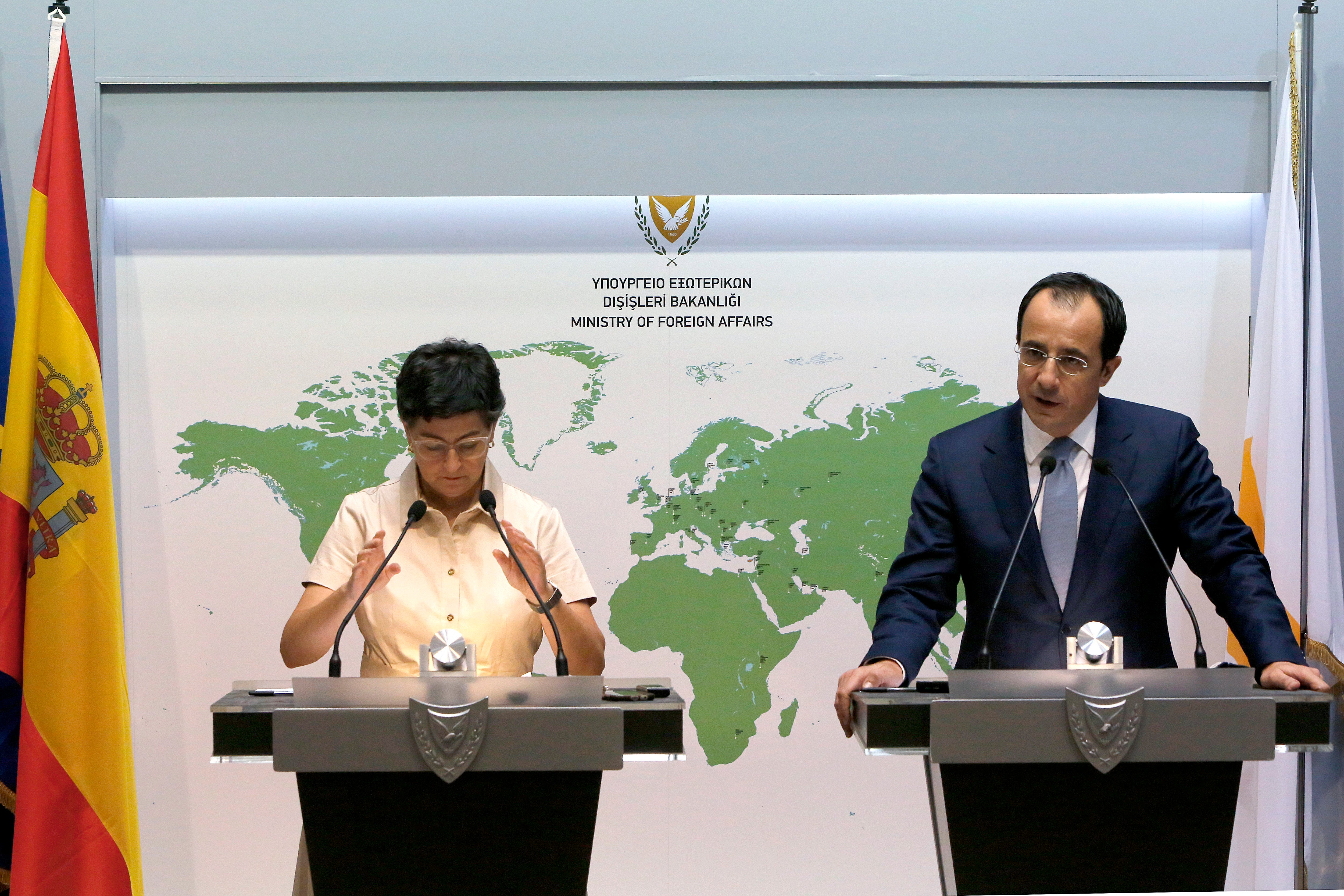Spain rebuffs Turkey's 'unilateral' gas search, backs Cyprus
Spain’s foreign minister says her country rejects Turkey’s unilateral search for energy reserves in the eastern Mediterranean and that negotiations are the proper way to resolve a territorial dispute that has ratcheted up regional tensions

Spain’s foreign minister on Wednesday said her country rejects Turkey’s unilateral search for energy reserves in the eastern Mediterranean, adding that such actions hinder a negotiated way out of a territorial dispute that has ratcheted up regional tensions.
Spanish Foreign Minister Arancha Gonzalez Laya expressed support for fellow European Union member Cyprus as Turkey continues to prospect for gas in waters where the Mediterranean island nation claims exclusive economic rights.
“We don’t believe there is a unilateral solution to the problems of the eastern Mediterranean region,” Laya said after talks with Cypriot Foreign Minister Nikos Christodoulides. “And therefore, we reject unilateral moves that are not helping in finding a long-lasting solution.”
Spain’s top diplomat said negotiations and dialogue are the only way to reach a “long-standing solution” to the complex maritime boundaries issue, which also triggered a weeks-long naval standoff between NATO allies Greece and Turkey this month.
“I’m saying this as this is exactly what Spain is doing to delimit its maritime borders with its neighbors. So I’m not preaching anything different from what I’m practicing,” Laya said.
Turkey insists that it’s entitled to carry out a gas search off Cyprus in order to protect its rights and those of Turkish Cypriots who run a breakaway state in the island’s northern third that’s recognized only by Ankara.
Turkey doesn’t recognize Cyprus as a state and claims that much of the ethnically divided island’s exclusive economic zone as lying over its own continental shelf.
Christodoulides hailed Turkey’s withdrawal of a warship-escorted survey vessel from Greece-claimed waters as a “positive first step” to deescalating tensions at sea.
But he said Turkey has stepped up its activities in Cyprus’ maritime zones, displaying a “total disregard” for European Union to cease its “illegal” actions and to respect the sovereign rights of a bloc member.
The leaders of the EU's 27 member nations are expected to discuss potential sanctions against Turkey, which is not a member, at a two-day summit starting Thursday.
Christodoulides said Cyprus expects EU leaders to honor a deal the bloc’s foreign ministers struck last month to simultaneously impose sanctions on Turkey as well as Belarusian officials suspected of election fraud or involvement in a security crackdown on anti-government protesters.
“Cyprus looks to the EU and its partners for solidarity in action,” Christodoulides said. “Concretely upholding our common values and interests and implementing our own decisions is of the essence.”
Bookmark popover
Removed from bookmarks